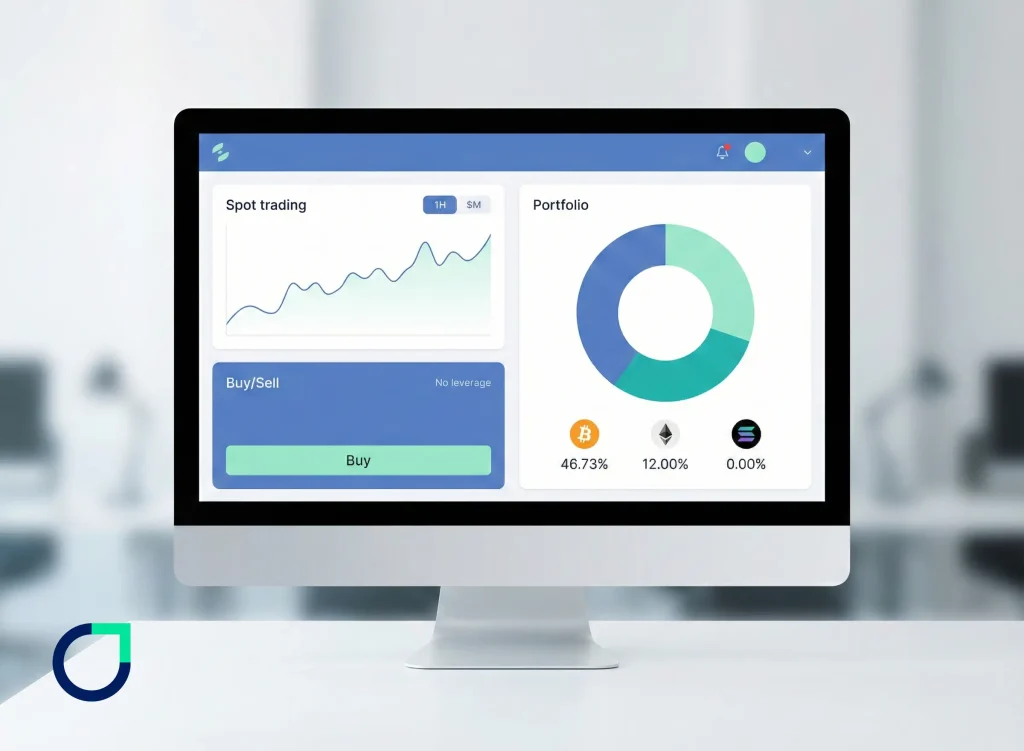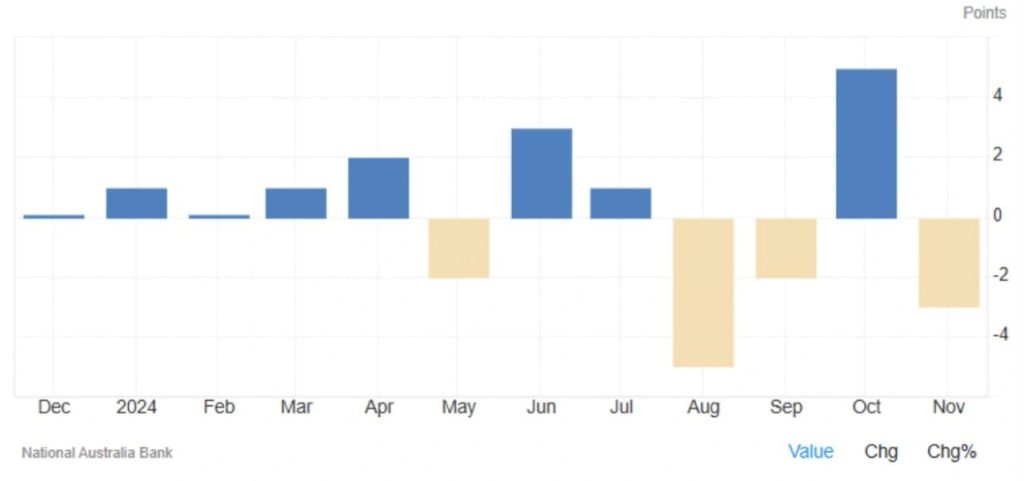
Australia’s Business Confidence Drops Sharply in November 2024
Australia’s National Australia Bank (NAB) business confidence index experienced a notable plunge to -3 in November 2024, down from a near two-year high of 5 in the previous month. This decline marks a significant shift in the country’s economic sentiment, reflecting a broader pessimism across most industries. While construction managed to hold steady, most other sectors saw declines in confidence. The sharp drop in the index, now below its long-term average, raises concerns about the overall economic health and suggests a more cautious outlook for businesses as they enter the final months of the year.
Declining Business Conditions Signal Economic Weakness
Business conditions also showed a marked deterioration in November, falling to their lowest level since late 2020 at 2, compared to 7 in October. This decline was broad-based, with all sub-components now reporting at or below average levels. Sales fell to 8 from 13, indicating weaker demand, profitability dropped significantly from -1 to 5, and employment levels saw a minor decrease from 3 to 2. These declines across key metrics suggest a weakened economic environment where businesses are facing challenges in maintaining profitability and employment stability. Retail and manufacturing sectors, in particular, reported the worst conditions, further exacerbating the concerns about their contribution to overall economic growth.
Cost Pressures and Pricing Trends Point to Challenges Ahead
Cost pressures remain a concern for Australian businesses, despite labor cost growth remaining unchanged at 1.4% in quarterly terms. However, purchase cost growth increased slightly to 1.1%, signaling some strain on businesses in terms of input costs. Product price growth remained stable at 0.6%, but with retail price growth slowing to 0.6% from 1.1%, there are indications that businesses may find it challenging to pass on these costs to consumers without impacting demand further. Forward orders fell further to -5 from -3, which is another worrying sign as it suggests weaker demand ahead. Despite these pressures, capital expenditure (Capex) showed a slight rise to 10 from 8, reflecting some investment activity among businesses, although this remains muted amid broader economic uncertainty.
Outlook and Implications for the Future
NAB’s chief economist, Alan Oster, commented that the survey results indicate ongoing soft growth into the fourth quarter. He noted that it will likely take more time for price pressures to normalize fully, suggesting that businesses may need to adjust their strategies to cope with the current economic environment. The subdued business conditions and declining confidence highlight the challenges that Australian businesses face, especially with the pressures on costs and demand persisting. This calls for a cautious yet proactive approach from businesses, as they navigate through an uncertain economic landscape. Businesses might need to consider cost-saving measures, investment strategies, and innovative approaches to maintain resilience and sustain growth in a challenging economic climate.
Share
Hot topics

What Is Spot Trading?
Spot trading refers to the buying or selling of an asset for immediate delivery in the current market (or “spot”) and does not contain any future obligations, expiration dates, or...
Read more





Submit comment
Your email address will not be published. Required fields are marked *